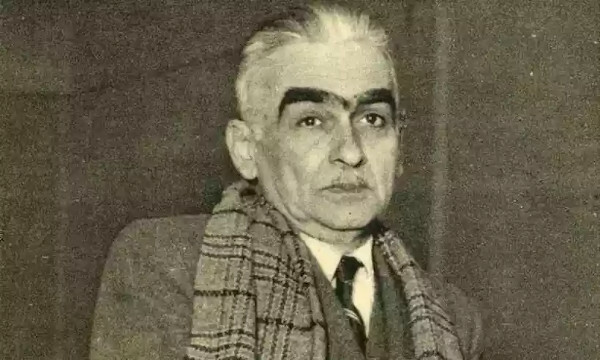O March 25th is known in Brazil as Constitution Day. This date celebrates this fundamental document for the functioning of our country as a nation. The 25th of March was chosen because, on that date, in 1824, Brazil granted its first Constitution. It was written after the independence and was in effect in the monarchic period.
Throughout its history, Brazil has had a total of seven Constitutions, of which three were granted (imposed by the government) and four were enacted (approved after debates between the parliamentarians). The current Brazilian Constitution was enacted in 1988 and became known as the Citizen Constitution.
Accessalso: Welfare State - creation, relationship with public policies and in Brazil
Preparation of the first Constitution of Brazil
![Constitution Day is celebrated on March 25th because on that date, in 1824, the first Constitution of Brazil was granted. [1]](/f/a9b9c4e0b0b2da83e84483d6a58d7614.jpg)
Constitution Day is celebrated when our first Constitution was granted. this happened in March 25, 1824 and it is related to the process of consolidation of the Brazilian nation after the conquest of independence. With this achievement, it was necessary to have a
Constituent to draft a Constitution.This event had been in the making since before Brazil went through its independence process, after all, José Bonifácio, one of the closest men to d. Peter I, had held the convocation for the Constituent Assembly in June 1822. The assembly formed for this purpose was composed by 90 deputies.
These parliamentarians met as constituents for the first time on May 3, 1823. It was their job to carry out all the work of drafting the Constitution. The work was not easy, after all, they had to reconcile the different interests existing within the group, in addition to taking measures that pleased the emperor of Brazil.
Do not stop now... There's more after the advertising ;)
The Brazilian Constituent was divided into two large groups. You Conservatives, known as the “Portuguese party”, defended the implantation of an absolute monarchy in Brazil. And the liberals, known as the “Brazilian party”, were divided into two subgroups: the “moderate” and the "exalted", who defended a constitutional monarchy, and some of them even defended a system republican.
These differences were noticed during the process of drafting the Constitution, but the big problem was the relationship between parliamentarians and the emperor. The work of the constituents gave rise to the Cassava Constitution, model presented to d. Peter in mid-1823. The emperor was not satisfied with it, as it had mechanisms that sought to limit its power before the Legislature.
It turns out that d. Pedro I had no intention of submitting to the interests of parliamentarians, as he wanted to concentration of power in his hands. The result of this is that the emperor approached the “Portuguese party” and decided to take the pathauthoritarian. On November 12, 1823, he ordered the dissolution of the Constituent and the arrest of some of the parliamentarians.
This event was called night of agony. Then d. Pedro I brought together the 10 members of the Council of State, all jurists, and, in about 15 days, a new Constitution was drafted, but this time, to his liking.
readmore: What is a monarchy? See the differences between absolute and constitutional monarchy
Characteristics of the Constitution of 1824
The Constitution of 1824 was granted, that is, it was imposed on March 25, 1824, and guaranteed the interests of the emperor, giving him innumerable powers over the country. Brazil was confirmed as a nationmonarchist, however constitutional. The powers of d. Pedro I stood above the rest of the country through a mechanism created in this document: the Moderating Power.
This power posed itself as a roompower and was above the Legislative, Executive and Judiciary. Furthermore, the emperor was unimputable and therefore could not be held liable for any kind of action as such. the power was hereditary (passed from father to son), guaranteeing it in the hands of the Braganças.
O vote in Brazil was census, which meant that only Brazilians with an annual income of 100,000 réis could vote. In addition, illiterate people could vote, and some individual liberties were guaranteed, but the slavery.
Accessalso: How was the life of ex-slaves after the Golden Law?
Brazilian Constitutions
![The current Constitution of Brazil was enacted on October 5, 1988. [2]](/f/dc51f5abb9baa9b2269a2f4ce946ad2d.jpg)
Throughout its history, Brazil has had seven Constitutions, the 1824 one being the longest-lived of them. The seven Constitutions of Brazilian history were as follows:
Constitution of 1824 |
Grantee on March 25, 1891. It implanted the monarchic system, the transmission of power through hereditary means, the census vote, indirect election, and the non-imputability of the emperor. The emperor's power was above all others. |
Constitution of 1891 |
Enacted on February 24, 1891. Consolidated the change of form of government in Brazil through the republic. It implanted presidentialism, with a four-year term and without re-election. It established universal male suffrage with limitations. Officially separated State and Church. |
1934 Constitution |
Enacted on July 16, 1934. It was the result of pressure about Getulio Vargas for him to constitutionalize his government. It was considered an advanced document for the time that was inspired by the Social Democratic Constitution of the Weimar Republic. Consolidated the female vote. |
1937 Constitution |
Grantee on November 10, 1937. It was inspired by the 1935 Polish Constitution and was a document with an authoritarian text that reinforced Vargas' centralization of power. It was established as part of efforts to implement the new state, the Vargas dictatorial regime. |
1946 Constitution |
Enacted on September 18, 1946. It was a liberally biased document that helped establish the first democratic experience in the history of Brazil. It established the universal suffrage of the vote, although it excluded the illiterate. It guaranteed individual rights, and implemented a representative presidential system. |
1967 Constitution |
Grantee on January 24, 1967, created the constitutional mechanisms that validated the authoritarianism of the Military dictatorship. Incorporated the determinations of the Institutional Acts, and ensured a great centralization of power in the hands of the president, a figure chosen by the military. |
1988 Constitution |
Enacted on October 5, 1988, the Citizen Constitution is the most democratic document in the history of Brazil. It was the result of a dialogue between constituents and Brazilian society over the course of months. It guaranteed a representative system with universal suffrage and presidentialism, and established important social rights and individual freedoms. |
Image credits
[1] Rodrigo Viana/Federal Senate
[2] FGV/CPDOC
By Daniel Neves
History teacher
Would you like to reference this text in a school or academic work? Look:
SILVA, Daniel Neves. "March 25th – Constitution Day"; Brazil School. Available in: https://brasilescola.uol.com.br/datas-comemorativas/dia-da-constiuicao.htm. Accessed on June 27, 2021.



